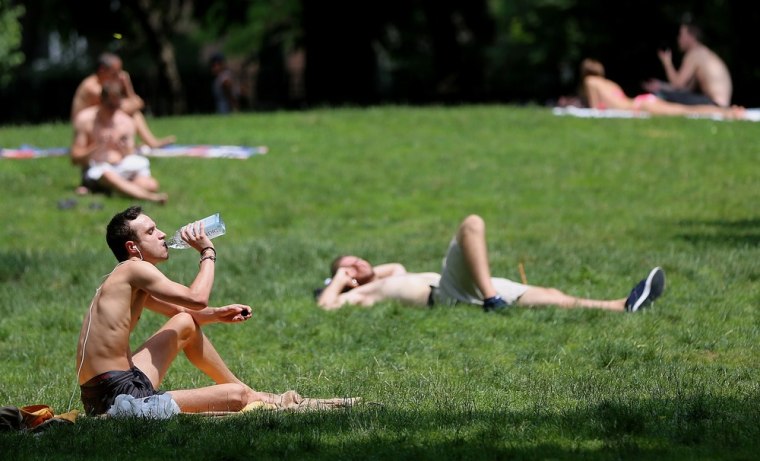It's a sweaty summer all across the country -- it's still early, but even Alaska and the reliably cool Pacific Northwest have had hotter than usual days, with temperatures creeping above 90.
And as the temperature gets hotter -- so do our tempers. Summer heat waves make us act like cranky, whiny toddlers, experts say, and studies have even shown that as the degrees tick up, so do crime rates.
“If someone cuts you off in traffic, you’re much more likely to honk at them or flip them off if it’s a hot day rather than a cool day,” says Brad Bushman, an Ohio State University psychologist.
An increase in body temperature causes an increase in physical arousal – your heart rate goes up and your blood pressure rises as your poor body tries to cool itself off, explains Dr. Jeff Borenstein, president of the Brain and Behavior Research Foundation in Great Neck, N.Y. And that can be bad news for your behavior, because increased physical arousal is known to be linked to aggressive behavior.
But when we’re overheated and annoyed, we don’t feel like we’re worked up. “That’s really an interesting phenomenon about temperature -- as temperature increases, perceived arousal decreases,” says Bushman, who has studied the link between hotter temperatures and criminal behavior. He adds that you might say to yourself, “’Oh man, I feel drained, I feel sluggish, I’m dragging. But if you measure their physical arousal, it actually increases with increase in temperature. And that’s a recipe for disaster.
“We know that arousal is linked to aggressive behavior,” he continues. “So if people think they’re not aroused, what they end up doing is overreacting.”
Ellen Cohn, a criminologist at Florida International University, has studied the link between higher temperatures and an increased crime rate since grad school. “Generally, what we find is as it gets hotter, crime tends to go up,” says Cohn, co-author of a paper that looked at two years in Minneapolis and found that more crimes were reported during summer than other months. (There are some caveats here, she says: In the summertime, more people are on vacation, leaving their homes empty. And vacation-brain can lead to less-than-cautious behavior, like leaving your wallet on the beach when you take a dip in the ocean.)
What’s more, even mild dehydration can alter a person’s mood, as a study published last year showed. After losing just 1.5 percent of the body’s normal water volume, the study participants were fatigued, they had difficulty concentrating and their heads ached – and they were more tense and anxious.
“When it’s very hot, people have a tendency to get dehydrated or underhydrated, and that can certainly result in becoming anxious and irritable, so it’s very important to maintain hydration,” Borenstein says. That’s something to remember when you’re downing iced coffee after iced coffee, because caffeine acts as a diuretic. “You’re walking down the street, and you see a million people drinking iced coffee,” Borenstein says. “That can increase the heart rate, and it can cause some irritability and some anxiety.”
